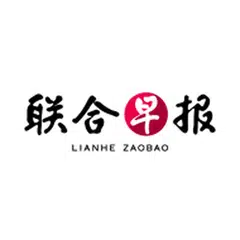Will scion Kenneth Fok become Hong Kong's future chief executive?
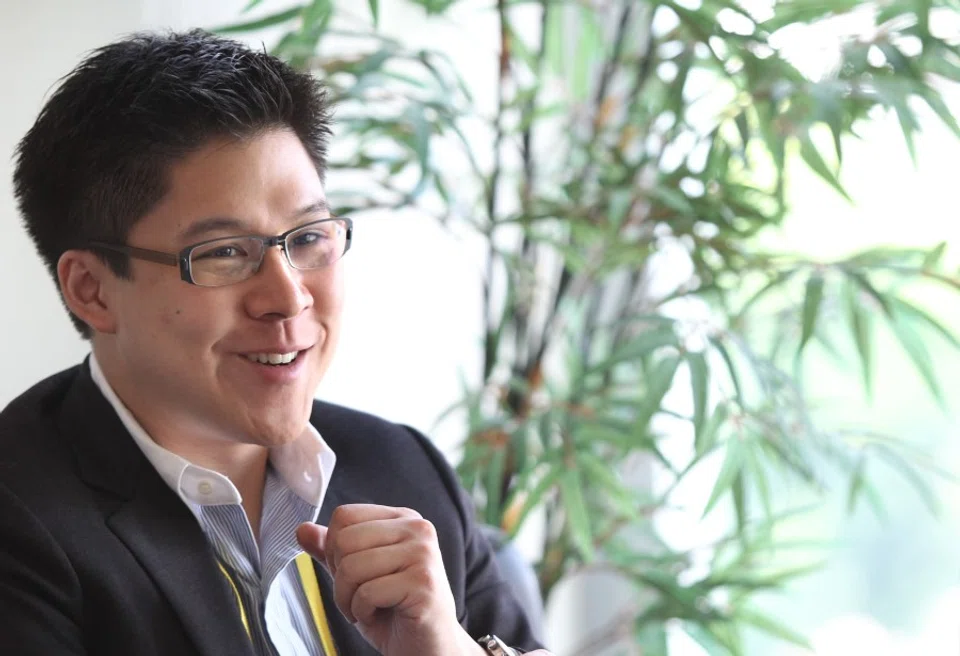
On 15 December, Kenneth Fok Kai-kong won one of the Hong Kong seats in the National People's Congress (NPC) after securing 1,248 votes, the highest number for a male candidate, earning him the nickname "King of votes". In 2021, Fok ran as a first-time candidate in Hong Kong's Legislative Council (LegCo) elections and won the Sports, Performing Arts, Culture and Publication constituency seat.
The youthful-looking 43-year-old is better known as the eldest grandson of the late tycoon Henry Fok Ying Tung and the husband of former Olympic gold-medal diver Guo Jingjing. The elder Fok was the vice-chair of the National Committee of the Chinese People's Political Consultative Conference (CPPCC), and was called a "patriotic" businessman by China.
An insider of Hong Kong's political scene told Lianhe Zaobao on 15 December that given Kenneth Fok's family background and personal bearing, he is one of Beijing's preferred candidates to be Hong Kong's next chief executive. His outstanding performance in the NPC election shows that he has Beijing's trust and blessings, which would boost his candidacy as the next Hong Kong chief executive.
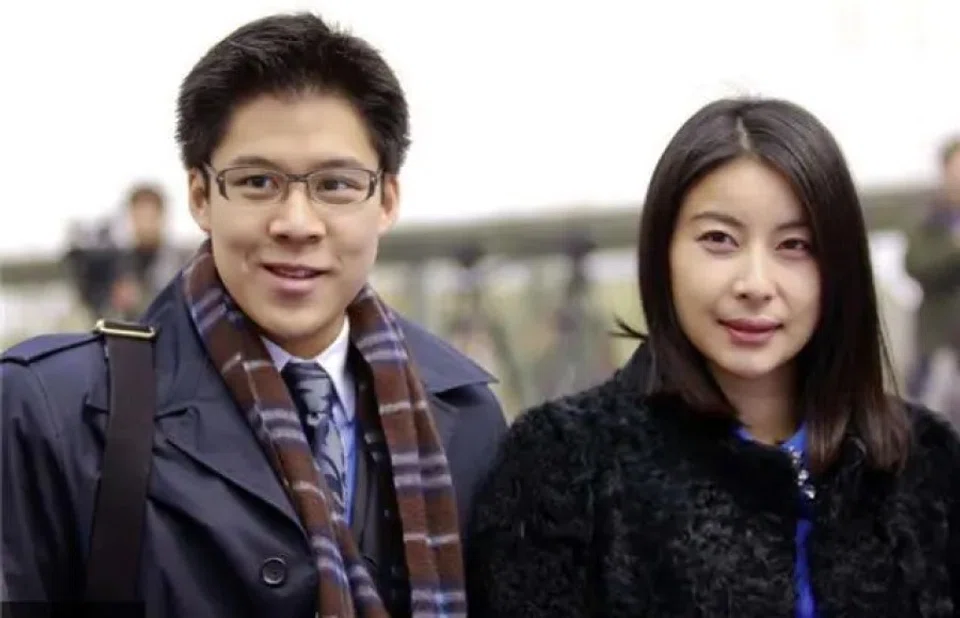
Nonetheless, Chan Wai-keung, a lecturer at Hong Kong Community College under Hong Kong Polytechnic University, noted that while Fok comes from a family of patriots and his clean-cut image gives him an advantage, it is still too early to claim that he will be a candidate for the next Hong Kong chief executive.
The chief executive needs to be familiar with the inner workings of the government, and Fok is only one year into his term in the LegCo, with no other administrative experience in the government to speak of - this is his biggest weakness, and he would need time to learn. Nonetheless, this scion is standing out in politics.
During Hong Kong's first chief executive election in 1996, two out of the three candidates were shipping tycoons.
Dreams of being chief executive
Prior to the British handover of Hong Kong to China in 1997, most of Hong Kong's tycoons focused on business and kept their distance from politics. But with mainland China's reform and opening up, China and Britain began discussions about Hong Kong's future, and Hong Kong tycoons gradually became sought-after targets for the powers that be, to ensure a stable transition for Hong Kong without an outflow of funds.
During Hong Kong's first chief executive election in 1996, two out of the three candidates were shipping tycoons. In the end, Tung Chee-hwa - eldest son of shipping magnate Tung Chao-yung - became the first chief executive following Hong Kong's handover, leading to the saying "Hong Kong run by businessmen".
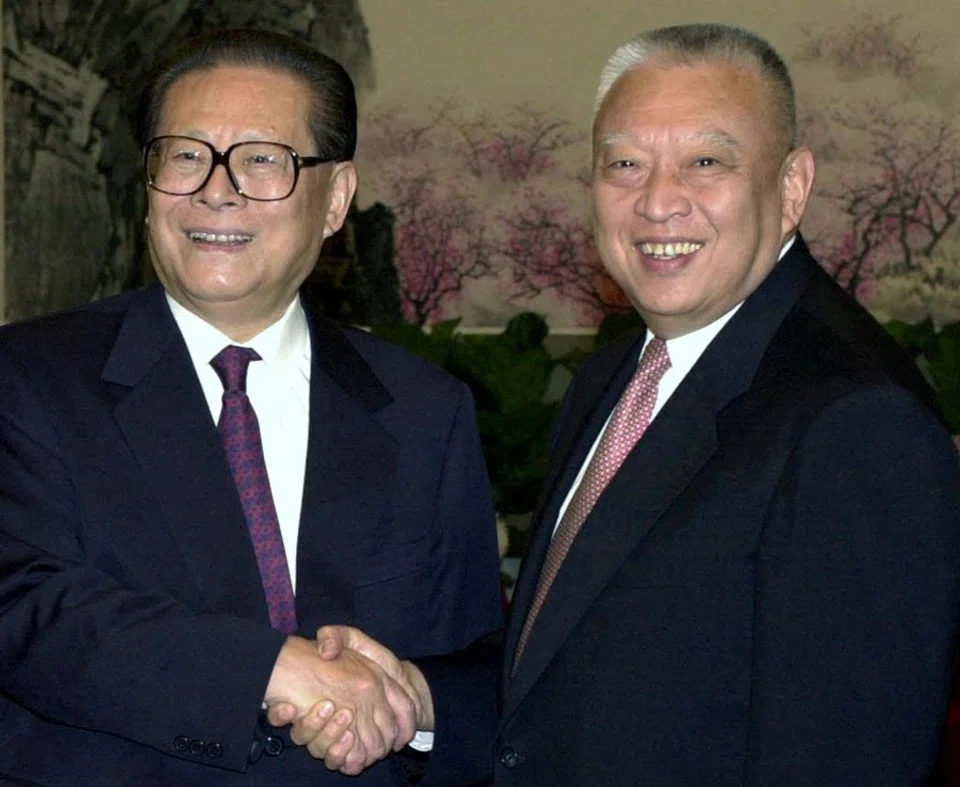
Tung Chee-hwa himself apparently did not aspire to be chief executive; it was under strong persuasion by Beijing that he dropped his business for politics to give back to Hong Kong.
However, despite Tung's patriotism, governing Hong Kong as a businessman was no easy feat and his term ended in failure, marred by politics, as well as the bad luck of facing the Asian financial crisis and SARS outbreak.
After Tung stepped down in March 2005 citing "leg pain", his successors were either professionals such as Leung Chun-ying, or civil servants such as Donald Tsang, Carrie Lam and John Lee. They came from regular backgrounds and made it to the top through opportunities as well as their own capabilities and effort - none came from a privileged background.
However, two previous candidates for chief executive came from families in business - former chief secretary of Hong Kong Henry Tang Ying-yen in 2012, and former vice-president of the Court of Appeal of the High Court Woo Kwok-hing in 2017.
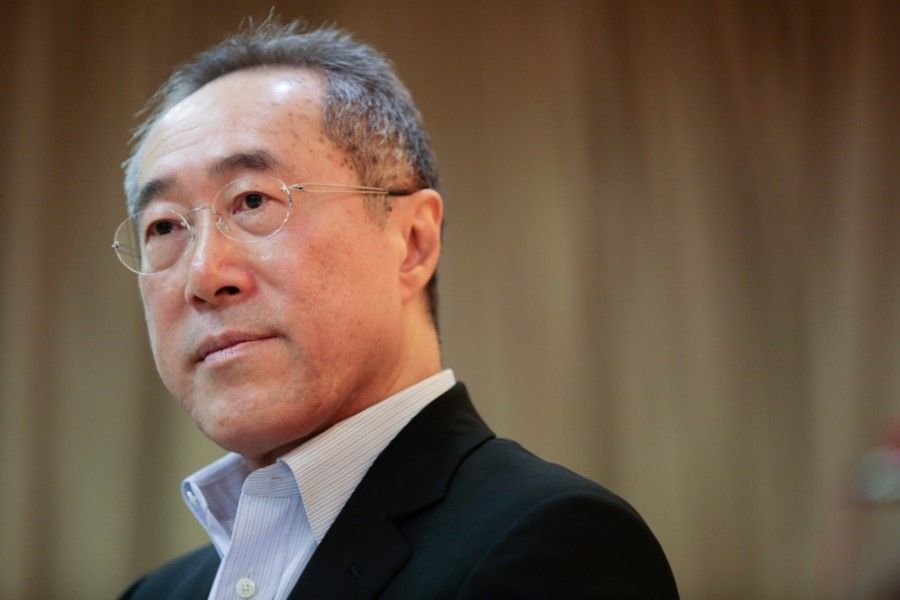
Henry Tang's family was in the textile business. His great-grandfather owned a textile factory in Wuxi, China, and his grandfather Tang Junyuan was the vice-chair of the CPPCC in Shanghai and a member of the third to sixth CPPCC. His father Tang Hsiang Chien migrated to Hong Kong and continued the textile business.
In 2012, when Henry Tang ran for chief executive, he was initially favoured as having the support of Beijing, but during the campaign he faced scandals such as extramarital affairs and violating building regulations with his mansion, eventually gaining only 27.14% of votes and losing to Leung Chun-ying.
Meanwhile, Woo Kwok-hing's father was in the construction business. When Woo ran for the city's chief executive in 2017, Hong Kong media reported that in the 1960s his family had already owned luxury items such as televisions and table tennis tables. He only garnered 1.81% of votes at the 2017 chief executive election, coming in last among the three contenders. Tang's and Woo's dream of becoming Hong Kong's chief executive did not come to pass.
... even at the risk of arrest by the British government in Hong Kong, Henry Fok provided ships to sell and transport embargoed goods to the mainland.
Outstanding figure in the third generation of the Fok family
Kenneth Fok's grandfather Henry Fok was a renowned patriotic businessman who had invested in and donated to mainland China.
During the Korean War in the 1950s, the British government in Hong Kong imposed a trade embargo on mainland China in accordance with a UN resolution. Notwithstanding, even at the risk of arrest by the British government in Hong Kong, Henry Fok provided ships to sell and transport embargoed goods to the mainland. This gave the mainland a massive amount of strategic resources to fight against the US and support North Korea.
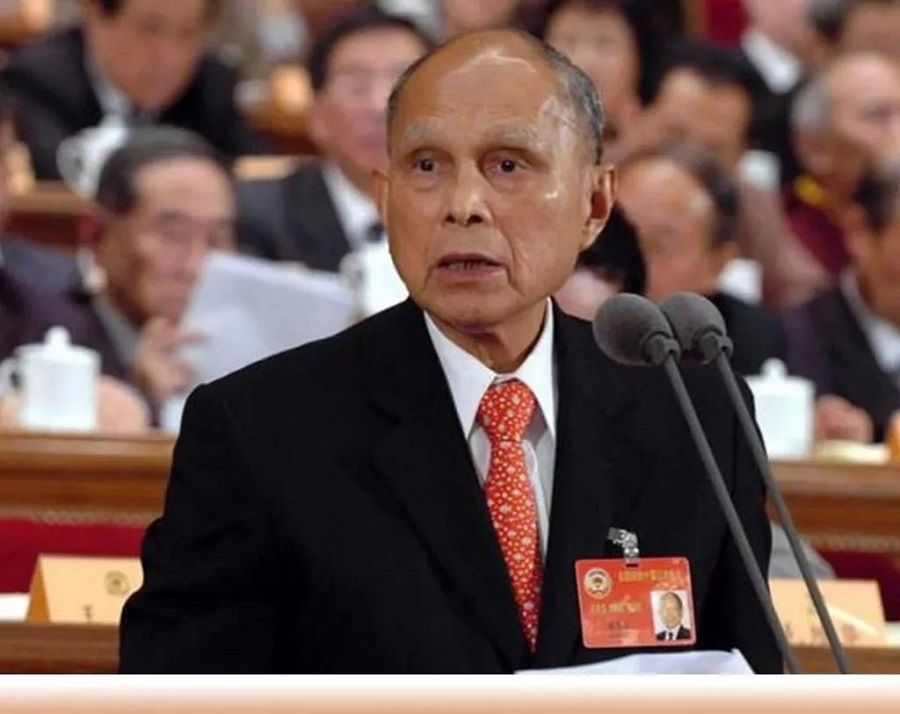
However, his business became a target of the British and US governments in Hong Kong and he had to cheaply sell his commercial building because the British-controlled telecom company refused to connect the building.
But his patriotic deeds earned Henry Fok the trust of Beijing. Although he was not among the wealthiest Hong Kong tycoons, he played an active role in the Sino-British negotiations on the future of Hong Kong, the drafting of the Basic Law of Hong Kong and Tung Chee-hwa's appointment as Hong Kong chief executive.
Kenneth Fok's father Timothy Fok Tsun-ting is active in the sports arena and currently serves as president of the National Olympic Committee of Hong Kong and president of the Hong Kong Football Association. He was a member of the International Olympic Committee from 2001 to 2016. Notably, the public is most familiar with the fact that he married 1977 Miss Hong Kong Pageant winner, Loletta Chu.
In 2014, Zaobao interviewed Kenneth Fok when he led the Hong Kong United Youth Association to Singapore for a business management leadership programme. Zaobao reported that Fok attended an elite boys' school in England at the age of 11. Due to his outstanding academic performance, Fok was admitted to Pembroke College, a constituent college of the University of Cambridge, and graduated with a bachelor's degree in economics and management.
Even his marriage with Chinese Olympic gold medallist Guo Jingjing is seen as "politically correct" and beneficial to his political career.
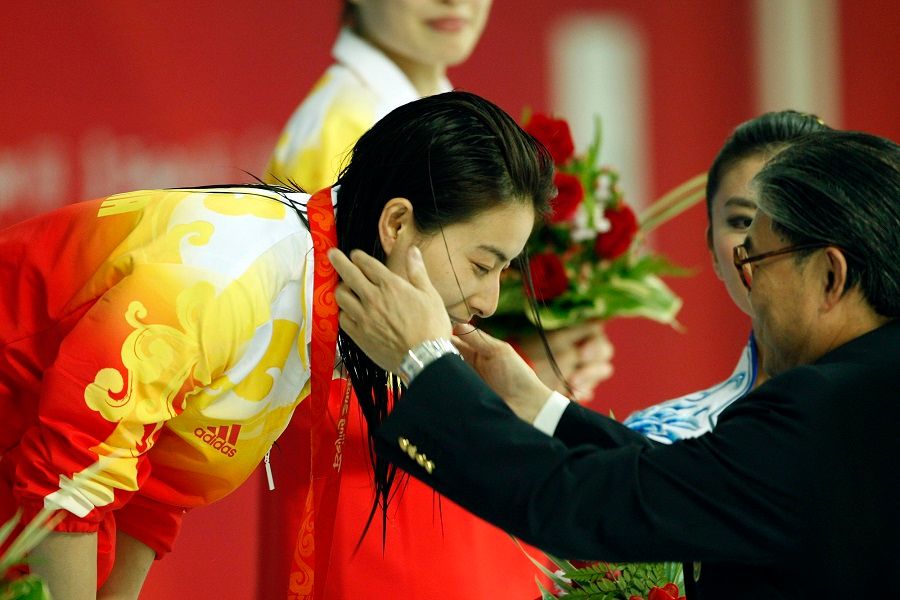
He started investing in stocks when he was still in school and did not join the family business when he graduated in 2002. Instead, he started a business consulting firm MINT with his friends, and later became an analyst at world-leading investment banks Goldman Sachs Asset Management and Salomon Brothers. He joined the family business a few years later and is the current vice president of the Fok Ying Tung Group.
Kenneth Fok also holds several positions in public service, including chair of the Hong Kong United Youth Association, and is active in associations promoting gymnastics, ice-skating, esports and other sports. He is also a member of the 13th National Committee of the CPPCC, and can be said to have fully inherited his grandfather's legacy in business, sports and patriotism.
Following the 2019 anti-extradition bill protests in Hong Kong, Beijing tightened its grip on Hong Kong and emphasised that Hong Kong has to be run by "patriots". In this respect, given his grandfather's legacy, Kenneth Fok fits the bill. Furthermore, he is known to be well mannered and articulate, and is rarely embroiled in scandals. Even his marriage with Chinese Olympic gold medallist Guo Jingjing is seen as "politically correct" and beneficial to his political career.
Will Kenneth Fok become Hong Kong's youngest chief executive?
From holding a series of public offices to running for Hong Kong's LegCo and China's CPPCC, Kenneth Fok seems to be on a political path to the top post of chief executive.
Incumbent Hong Kong Chief Executive John Lee has just begun his term in office, and the next chief executive will not take over until 2027 at the earliest. If Beijing is satisfied with the performance of a leader with a police background, Lee could even keep his position until 2032. Thus, Kenneth Fok still has time to get ready.
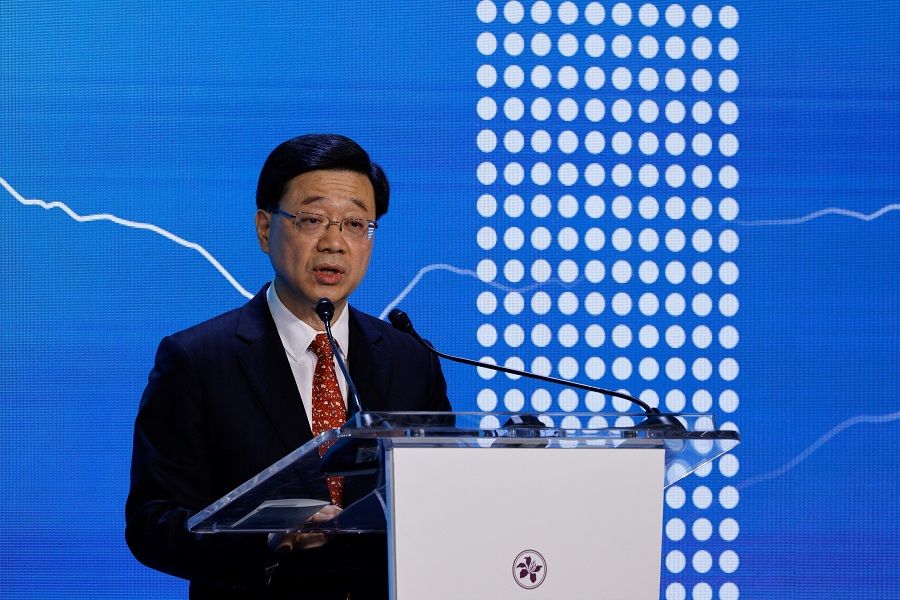
Looking back at the political career of Henry Tang, the son of another powerful family, he was a member of the LegCo under British rule and became a member of the Executive Council after Hong Kong's handover. He later served as secretary for commerce, industry and technology; financial secretary; and chief secretary for administration, until he resigned in September 2011 to run for chief executive. However, despite two decades of preparation, he still failed to become the city's chief executive.
Meanwhile, Kenneth Fok only became a member of the LegCo in 2021. If there is already talk that he could be Hong Kong's next chief executive, it is inevitable that people will question whether "patriotism" is indeed a fast-track pass under the "patriots rule Hong Kong" governance model.
This article was first published in Lianhe Zaobao as "霍启刚--承载香港世家子弟的"特首梦"?".
Related: Hong Kong must be governed by 'patriots'. So who are the 'patriots'? | Hong Kongers losing their voice as district councillors quit? | Hong Kong's electoral reform: Powerful businessmen to lose influence in politics? | Why John Lee is Beijing's top pick for Hong Kong's next chief executive | First LegCo election under Hong Kong's new electoral system: Tough road ahead for non-pro-establishment candidates
